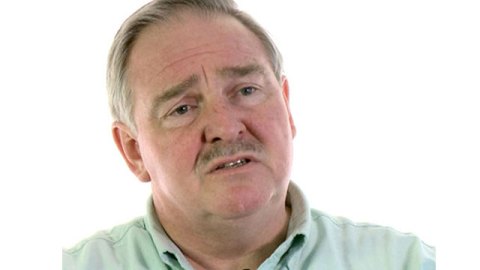Prof. David Nutt awarded the John Maddox Prize for Standing up for Science

Prof. David Nutt is a man who needs no introduction. The expert psychiatrist, neuropsychopharmacologist and Chair of the Independent Scientific Committee on Drugs (ISCD) was made world famous by former Home Secretary Jacqui Smith who in 2008 fired him from the British Government’s Advisory Council on the Misuse of Drugs for providing the British Government and the public with advice about drugs based on science. This wasn’t a major setback for the professor, who wasn’t on the government payroll and was being flatly ignored by the government anyway, but in the short time that he has been free from interference a lot of good has come from his liberation.
In 2011 I had the pleasure of interviewing Prof. Nutt, we talked about the professor’s liberation from the subliminal pressure to give the government the answers they wanted and the freedom of being able to start the ISCD. Only a few months earlier Prof Nutt had published a breakdown of drug harms in The Lancet that turned the government’s classification system on its head.
We discussed how that year the new government was already following in the previous government’s footsteps; by pushing science out of the ACMD and harming scientific progress by banning chemicals before science had a hope in hell of figuring out whether or not they might even be remotely likely to be useful.
The John Maddox Prize awarded by Nature and Sense About Science for standing up for science demonstrates the support within the scientific community for the man outcast from government for confronting the lack of respect for science within the current system. Yesterday Prof. Nutt described in The Conversation how the situation has worsened, how science has recently been deprived of a great many entire groups of extremely promising new compounds:
“Instead we have the systematic banning of new drugs through the temporary banning orders. We know in the last month they’ve banned a whole series of compounds which were being developed for treatment of Parkinson’s Disease and a new tracer which looks to be the best for measuring serotonin in the brain. And they’ve done that without even knowing that these drugs were being developed for those purposes. They’re just so obsessed with the recreational use of drugs that they miss the science.
MDMA in some people with Parkinson’s Disease does have a very profound beneficial effect, making their abnormal movements better. So groups have been working on finding analogues [new compounds with similar chemical structures] that aren’t illegal so they can be made more easily available to patients – and it was a series of these compounds that have just been banned under a temporary banning order because they fall under a general structural terminology of a benzofuran. So people can’t work on them anymore.”
Prof. Nutt goes on to call on the scientific community to defend the work done by scientists that increasingly is being made impossible by the law: “We need scientists to stand up and say let’s do the right kind of science to actually improve health, and let’s make it such that the laws allow the therapeutic potential of drugs like MDMA to be developed.”
The professor slams the “continued deluge of misinformation from the Home Office about the relative harm of drugs and how the drug policies are working when they’re not”. The situation in the UK remains dire, but Prof. Nutt is still happy to be free from the clutches of the Home Office, “Did it give me a much greater voice in terms of thinking about the science? Probably. Overall it was a net benefit to the scientific field I work in.”
If you want free, honest, impartial advice about drugs from experts not politicians, head over to Drugscience.org, the website of the Independent Scientific Committee on Drugs. On the bright side, that’s not something I could say in 2008. Also check out the Professor’s excellent and very readable book: Drugs Without the Hot Air.
To keep up to date with this blog you can follow Neurobonkers on Twitter, Facebook, RSS or join the mailing list.





